Galapagos Gone Wild: When Utopia Bites Back
I couldn't stop coming up with titles. Honorable mentions: "Paradise Lost, Found, and Fumbled" and "Steel Teeth and Crazy Panties: A Tropical Tragicomedy."
Dear History Cranks and Fiends,
It's my pleasure to present an original essay by Abbott Kahler, the New York Times bestselling author of "Eden Undone: A True Story of Sex, Murder, and Utopia at the Dawn of World War II.” Abbott has unearthed a bizarre chapter of Galápagos history, featuring European exiles, wealthy American explorers, and a utopian experiment gone spectacularly awry—and includes a gun-toting baroness dubbed "Crazy Panties!”
While Ron Howard is bringing this stranger-than-fiction tale to the big screen in "Eden," starring Sydney Sweeney, Jude Law, and Ana de Armas, Kahler's meticulous research in today's guest post reveals why the book is, as always, better than the movie. Below, she offers a glimpse into the tangled web of relationships, rivalries, and possible murder that unfolded in paradise as World War II loomed.
x Alexis
By Abbott Kahler
One afternoon in the spring of 2012, I was scrolling newspapers.com (as one does) and a snippet from the December 21, 1941 edition of the San Francisco Examiner caught my eye: “Was Dr. Ritter, With His Steel Teeth, Poisoned in Paradise? Was ‘Baroness Eloise,’ Known as ‘Crazy Panties,’ Who Ruled the Island With a Gun and Love, Murdered by One of Her Love Slaves After She Had Driven the Other to His Death? And Why is Frau Ritter Going Back to What She Once Called ‘Hell’s Volcano?’—the Mystery of the Galapagos Island Which Germany Covets, to Be Solved At Last?”
What writer of narrative non-fiction wouldn’t go down a rabbit hole of research after that? As I learned, this incredible episode of history also involved an equally intriguing group of Americans: the wealthy explorers who “discovered” these European exiles on the Galapagos and became enmeshed in their intrepid, but ultimately fatal, utopian experiment.
I turned first to the University of Southern California in Los Angeles, which holds several archival collections related to the “Galapagos affair”—most notably the Allan Hancock Foundation Archive, named for industrialist and explorer George Allan Hancock, whose family owned the oil-rich La Brea tar pits. In the 1930s, when most were suffering from the collapse of the global economy, Hancock’s hobby was exploring the Galápagos, a crew of scientists in tow, in search of rare flora and fauna. It was the islands’ human inhabitants, they soon realized, who were the most exotic specimens of all.
On Floreana, a small, previously uninhabited island in the southern part of the archipelago, a group of European exiles had settled in search of “utopia.” Hancock first met and befriended an eccentric Berlin doctor, Friedrich Ritter, and his patient and lover, Dore Strauch, and the explorer’s archives contain voluminous correspondence between them. When Heinz Wittmer, a former official in the Weimar Republic, arrived on Floreana with his pregnant lover and young son, Friedrich complained to Hancock: “We are no more alone on the island.” Over time, Hancock would become Friedrich’s closest confidante. “I hope you know,” he wrote, “you understand me better than anyone else in the world.”
More would-be utopians arrived, namely Antonia Wagner von Wehrborn Bousquet (aka “Crazy Panties”), and two of her lovers, Robert Philippson and Rudolph Lorenz. To the chagrin of the existing islanders, the Baroness announced her intention to build a hotel and transform Floreana into a Miami-style resort. As tensions rived the small community, Friedrich worried that the Baroness—prone to inventing wild stories—would ruin his relationship with Hancock. “If you hear any sort of eccentricities or sensations or the like about us, you can be sure that these are lies circulated from this woman.” At the same time, the Baroness—also eager to cultivate Hancock’s favor—wrote to him about Friedrich, calling her rival the “toothless Adam in slippers” and accusing him of defaming her. And yet in Hancock’s USC archive, I found a never before published photo taken by Hancock’s photographer: side by side, their bodies tilted toward each other, they look at each other longingly, his arm snaked around her back. Was there, in fact, a secret intimacy between them?
Hancock’s entanglement with the European exiles would, in the end, eclipse his scientific research and conservation efforts. When two Floreana exiles disappeared, and two bodies washed up on a different Galapagos island, he launched an investigation and interrogated the survivors. Despite his efforts, there remains tantalizing question marks over what really happened on Floreana. The object lesson of the exiles’ experiment, however, couldn’t be more resounding. As Sir Thomas More, who coined the word “utopia,” famously wrote: “For things will never be perfect, until human beings are perfect.” Or, as William Golding put it centuries later, “Maybe there is a beast… maybe it’s only us.”
EDEN UNDONE: A True Story of Sex, Murder, and Utopia at the Dawn of World War II is out now. You can order here.
See you soonish! In the meantime, you can find me on Twitter and Instagram and my books on Bookshop, Amazon, and your local bookstore or library. If you’d like me to sign or personalize my books, purchase copies from Oblong.




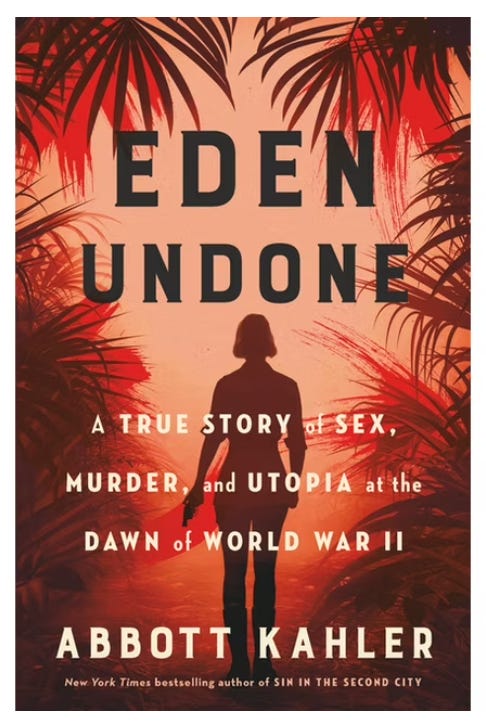
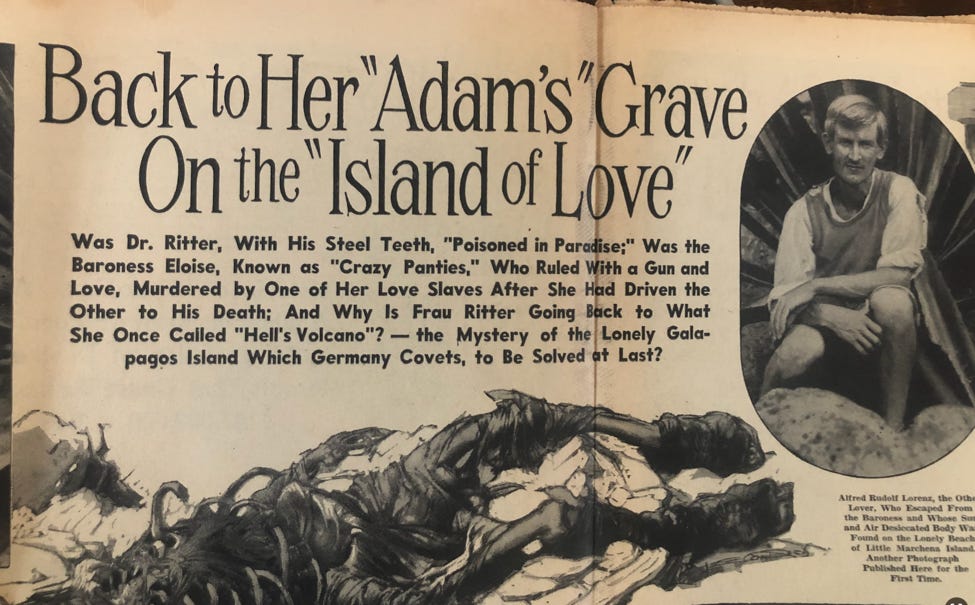
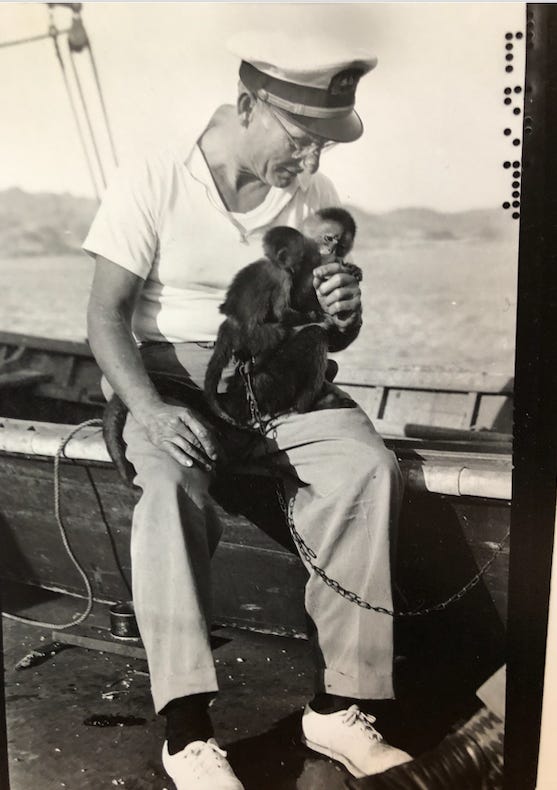
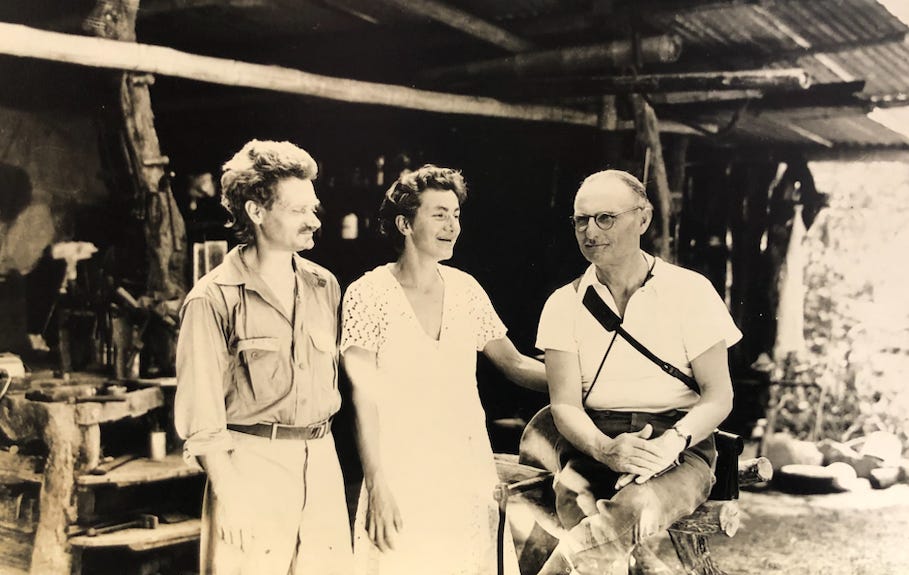
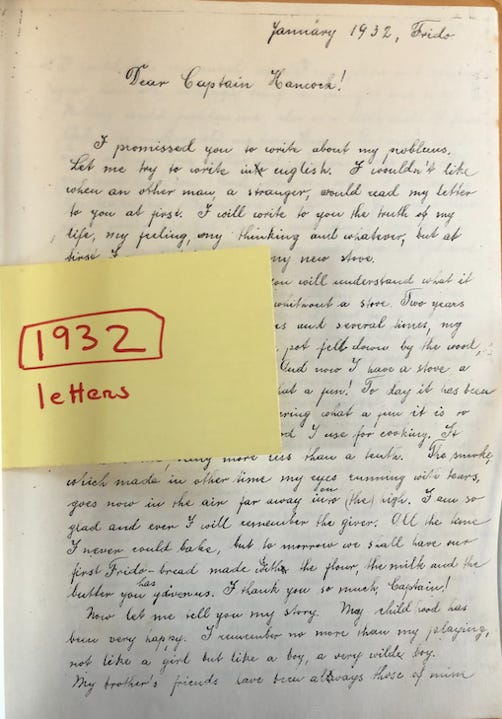
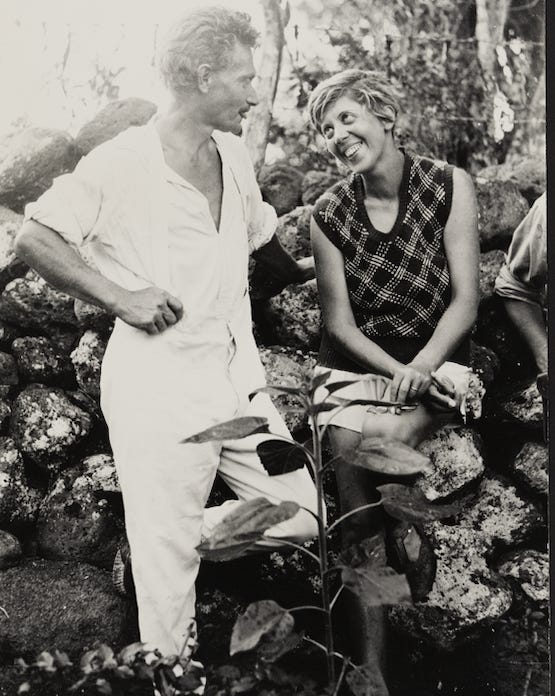
Thanks for sharing this essay by Kahler. I loved the book and am sharing my review at a conference this week. Highly recommend the book, for those who love non-fiction adventure.